Peonies
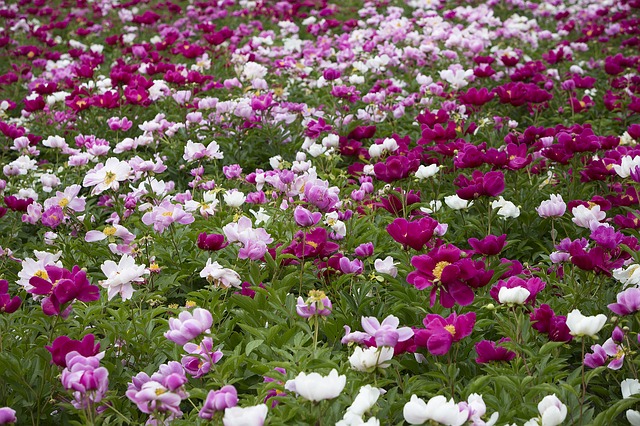
Much has been written about
these iconic flowers that deeply bury their roots in the
collective imagination of ancient cultures, of ancient peoples. Symbols of
gorgeous, brief, and brittle beauty; of a subtle, wild, and ancient fragrance like the fertile lands moistened by the warm rains of the springs in
which they flourish.
Read more: Walnut Tree: Description, Ecology, Uses, Cultivation, Chemical Composition, and much more
For thousands of years, peonies have been chosen, for example in Japan, as one of the elements of tattoo design in which two symbols that express the balance between power and beauty intervene, as a couple. Often this dual representation of symbols consists of the peony tattoo along with the Japanese lion or Shishi. The beauty of the flower tempering the fierceness of the animal; Ying and Yang symbols.
In Far Eastern cultures, peonies are icons whose meaning expresses: "Abundance, wealth, good luck and prosperity. They symbolize personal actions that take risks and challenges to obtain great rewards. The meaning of this flower is the natural representation of beauty, ephemeral and fragile; in fact, its duration as a cut flower is significantly less than that of other flowers used to make bouquets.

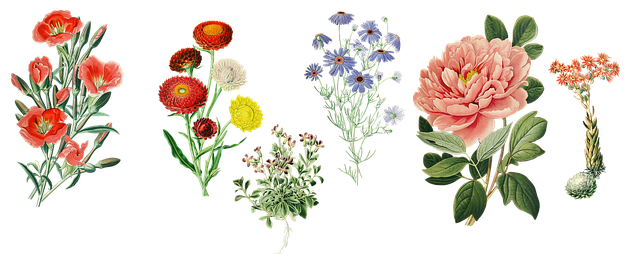
The only genus in the family is Paeonia and it is made up of
around forty species, among the more than 153 described. It belongs to a
family of rhizomatous Dicotyledonous plants. Its origin is in temperate
zones of Europe, Asia (Far East), and North America. In the European
continent, its distribution ranges from Portugal to Greece.
There are two types of peonies, the bushy and the vivacious. The herbaceous, cheerful peonies are perennial in the Iberian Peninsula, in more northern climates, they can disappear completely in winter and sprout again in spring. The shrubs form bushes that rarely exceed two meters in height.
Read more: Orange tree: Description, Morphology, Growth, Pest and, much more
Peonies colors
The peony has a diversity of colors and shapes. There are specimens of double flower, single flower, etc. The variety of colors is quite wide, some of the most cultivated for their beauty and fragrance are Paeonia Suffructicosa and Lactiflora Paeonia.
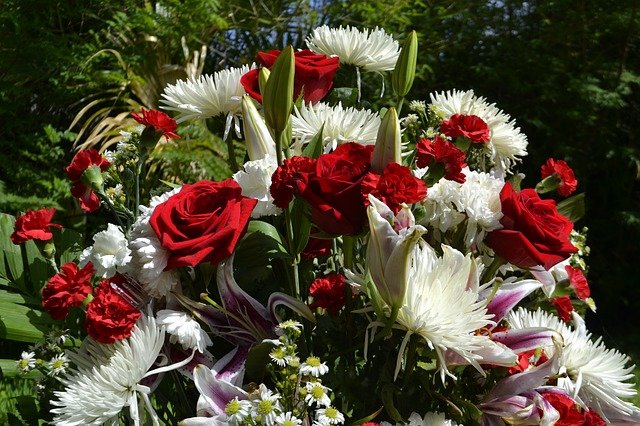
Peonies, in addition to being
cultivated as ornamental species for parks and gardens, are also cultivated for
obtaining cut flowers. As we have mentioned previously, in addition to
their beauty, it is worth noting the delicate fragrance of these flowers. Widely
used in floral art, bouquets of peonies are spectacular
floral compositions in which it is not possible to add other types of flowers,
although they combine very well with certain types of roses, the roses from the
so-called old tea rose bushes or the precious roses of the garden. It is a
highly prized flower to decorate wedding ceremonies and bridal bouquets of
peonies are often true jewels of floral art.
Peonies begin to bloom in spring, although this fact is highly determined by temperature so that there are years that are not obtained until well into the month of May and on the contrary, others at the end of March, beginning of April. the first specimens begin to emerge.
As a curious note we could add
that in certain areas of Spain there is a belief, without any foundation, that
when you smell a Paeonia flower, you get a headache.
May and June are highly
awaited months in the world of flowers because it is the season
when peonies bloom. Although it depends on the temperature and
you never know exactly when they will begin to bloom, it is generally in the
months of May and June when this beautiful flower can be seen in all its glory.
Our protagonist is actually a shrub or herbaceous plant, composed of
solitary flowers with pinnate leaves of light green color, and sometimes
darker.
Origin of herbaceous
peonies
Did
you know that the origin of Paeonia officinalis comes from
temperate regions such as Eurasia, North America, or China?
They
arrived in Europe at the end of the 18th century when in China they were
already being used for centuries both for their spectacular beauty and for
their roots to make natural medicines.
It originated in some regions of Europe,
North America, and China.
Although
there are many species and varieties, two main groups or classifications are
known:
1. The bush
peony: Formed by small bushes of shrubs or trees that do
not reach 2 meters in height. There are two types of species in this
variety: Suffructicosa and Lutea.
2. The herbaceous
peony perennial: Very easy to grow and bloom in spring. Its flowers
are simple and the best-known type of species is the «Peony of China».
Meaning of the
arboreal peony
The meaning of the peony has very
interesting concepts. This beautiful and large species in general
terms symbolize beauty, happiness, love ... possibly for
this reason it is widely used in weddings and ceremonies.
The meaning of bushy peonies includes
concepts such as beauty, love, union between two people, or happiness.
However,
it depends on the place and the color of the gardenia peony, the
meaning is totally different… We will analyze this in more detail below.
Meaning in Asian countries
In China, the Paeonia is known as Mudán (the most beautiful). It was first seen in the Qin Lin Mountains in western China.
About In the year 600 the Chinese Emperor Suiyang, wanted
in the gardens of the royal palace prevailed this plant as
a protagonist. Also during the Tang Dynasty in the 8th century, the
cultivation of Mudán became fashionable thanks to Empress Wu Zetian. Hence,
it is known how The King of Flowers, the flower of honor, of good fortune ...
was the favorite of the kings of China.
China is believed to be one of the places where
the peony flower originated. Later it was imported to
Europe and North America.
In Japan for
its meaning, they call Paeonia a flower of luck. It
symbolizes fortune, happiness, and prosperity. As is the rose in Europe.
In
Feng Shui (the search for physical and spiritual well-being in space), this
plant is very important. When a breakup of love arises, the peony is used
as a home decoration to soothe the pains of a broken heart.
In
Japan the Peony has a similar meaning to the roses in Europe: It represents
Fortune, Prosperity, and Happiness.
In these Asian countries, there is a belief that if you want to get pregnant or
have work or academic success, you should place tree
peonies of darker shades to fill the home with fertilizing energy.
Meaning in the West
The meaning of the peony in the West differs from Asian countries. The Japanese began to create artistic works with these plants and began to attract the attention of Europeans. This they believed that the plant was an imaginary drawing starting from the beauty of other flowers to create the perfect flower.
Once
they knew the real existence of it, it was considered better and the
expeditions began to cultivate it for the first time in England, France,
Germany, Holland ... thus reaching the USA and Canada.
In Europe, they were captivated by its beauty, and it
began to be cultivated in countries such as England, France, Germany, or
Holland.
The meaning
of the peony in the West changes to that of Asia. Like the
Narcissus, the meaning is also related to the culture of Greek
mythology. According to this, the name Paeonia comes from Paeon, who was
an apprentice to the God of Medicine Asclepius, whom Zeus turned into Peony
when his teacher got angry for having more talent than him in medicine.
Later
it is also said that the coquettish nymphs ran naked hiding behind the bushes
of this plant so that men could not see them. Hence, it is said that beauty
hides in them and also the association with one of its
meanings such as shyness or modesty.
In Europe, it represents beauty but also shyness or
modesty.
Another, myth that developed in the Middle Ages was that fairies could attack you if you dug up the shrubs of this species, considering it bad luck to extract the peony plant.
When do they bloom and how are they cared for?
5 fundamental keys
Without a doubt, these plants are one of the favorites and best valued among lovers of botany and gardening. Perhaps one of the reasons besides its majesty is the simplicity of its care and its great resistance to adversity. These characteristics make it one of the favorite flowers of the newcomers in the world of gardening.
Do you know how you should take care of how much water to use? The
key or fundamental tips that should be taken into account when caring
for peonies are defined below:
1. To guarantee
flowering, it will be vital that they are exposed to a lot of light. However,
during the hours of greatest exposure to sunlight, it will be
preferable to avoid direct contact with the sun.
2. Although they are
able to survive practically any climate, they flourish and live more
easily in cold climates and at low temperatures, even withstanding sub-zero
temperatures. For information on other cold-hardy plants, we recommend
reading our article on winter flowers.
3. When to sow? For the plant to grow
without problem, it is advisable to plant in times of low temperatures. Before
the question of when to plant this species, we can recommend the
beginning of spring.
4. In the case of
planting directly on the ground, always use fertile soil. In
the case of a pot, use soil and compost appropriate for this
species and a sufficiently large pot.
5. Water the plant
regularly but
avoid waterlogging. In this way, they will not get sick and we will
avoid the appearance of pests and mosquitoes.
Peonies flowers and
main varieties
Did
you know that there are dozens of varieties of the peony? There
is a very wide range in terms of shape, color, and size. We
will talk in detail about all the species in the following points.
Not all peonies smell. Also, some have a single
row of petals and others simulate the plumage of a bird with multiple rows of
petals.
Although
it seems that they all give off fragrance, the truth is that some smell
and others do not. Some are simple and have only one row of petals,
and others open like a bird's plumage.
Do
you want to discover in more detail the different colors and shades available? Keep
reading!
Pink and fuchsia
peonies
The pink
peonies are perhaps the best and are one of our favorites. They
symbolize love and beauty, being widely used together with white for
bouquets or bridal bouquets.

Pink or fuchsia is the color that comes to mind when
we refer to the peony flower. Undoubtedly the reference color
of this precious species and one of the most striking.
Its
flowering is usually in spring-summer and when you cut them from the buds, they
last a long time in your vase and are ideal to form a bouquet.
White peonies
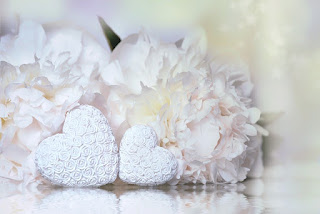
The white
peonies are one of the species of peonies that is widely used
for the bridal bouquets of flowers. This is usually the ' Duchess
of Nemours ' species and is also a Paeonia Lactiflora (herbaceous
peony).
You may have seen this variety on boards. It is
widely used to decorate and adorn bridal bouquets.
Its flowers,
full of petals are of a pearly white color, and from time to time, the part
of the inside of the petals acquire shades of a very soft pink until they reach
the yellow stamen.
White
peonies symbolize shame and shyness. That is why it is also
usually given as regret and apology.
Red peony
As
far as red peonies are concerned, we could mention the spectacular
species of this flower called " Red Charm ".
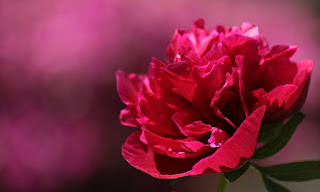
In, the West, red symbolizes superior beauty, the unattainable.
This is perhaps the most widely used variety and
color. Without a doubt an example of beauty and majesty. It has very
different meanings in Asia and the West.
In Asia, on, On the other hand, the color red is considered one of the important colors since
it was previously only used by emperors and their families. So it symbolizes
wealth, respect, and honor.
This
species is also large-flowered and double-petalled, full of fragrance.
Blue peony
The blue
peonies have a different touch to the other species of this
flower. This variety, given its striking color, is impressive and also has
a very strong fragrance.
The blue peony is one of the most fragrant peonies and
one of the most surprising.
Using peonies to make
a nice bouquet
It
is usually used to decorate gardens and to give as a bouquet
of flowers as a sign of gratitude.
Yellow Peony
This
variety is one of the most used for the elaboration of bridal bouquets of
peonies of 2019. Its striking color makes it one of the preferred
varieties for lovers of plants and botany.
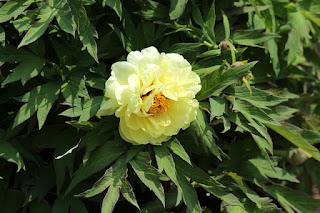
Yellow symbolizes
positive feelings and feelings ... Friendship, happiness, or optimism among
others.
The color yellow has always been related to positive feelings such as optimism,
friendship, bond or union between several people, and joy or
happiness. That is why this beautiful flower is usually the favorite of
many people when giving a bouquet to a loved one.
Green Paeoniaceae
Green
is also present in this species. It is perhaps a less striking color and
not as widely used as its pink or red siblings, but just as attractive.
It
has a wild, natural, or fresh appearance. Do you know how it is
usually used? Usually together with hydrangeas for the decoration
of gardens and patios. It is usually planted in a pot and although it
is not the most chosen variety for making bouquets, it is an interesting option
to combine with other flowers such as tulips.
Black Paeonia
It
is perhaps one of the unknown and less common varieties. Unlike the other
colors, it is rarely used for making bouquets or as an interior decoration
object.
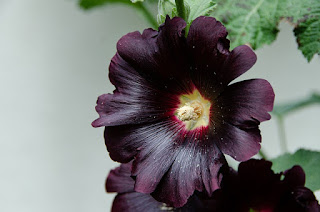
Orange: This is perhaps another of the less common colors of this beautiful flower. It's a real shame, as orange is simply one of the spectacular and eye-catching varieties. It has been delegated in second place by other more popular shades such as pink or red ... although from our point of view it has nothing to envy them.
Did you know about the existence of orange peonies? It
is perhaps one of the most unknown colors, but simply spectacular.
Together
with yellowish or whitish-colored bulbs, it can be an incredible
and very cheerful combination for bouquets and bouquets.
Purple and lilac
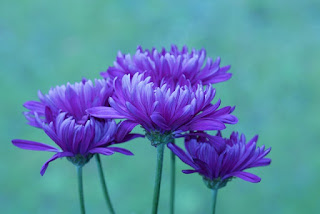
They have one of the best fragrances of this family of
flowers. In addition, they are very resistant and require little care.
One
of the advantages of this variety is that it requires very little attention and
care since it is quite resistant. Excellent for those clueless or people
who spend a lot of time away from home.
Wild Peony
The wild peony is also known as Paeonia
brother, cursed rose, or bush rose. Unlike
other varieties that we have analyzed, the wild peony has a
simple appearance since it is composed of simple and divided leaves.
It is a variety of medicinal uses. It has a
sedative effect and is used to heal hemorrhoids.
The properties
of the wild peony are among other medicinal, as a sedative or for
hemorrhoids. It is recommended to be careful when using this flower as a
treatment since if you overdose it can become toxic.
Japanese Peony
The Japanese
peony (also known as giapponese ) is a species halfway
between simple and double petals. Given its beauty, it
has been widely used as an inspiration in Japanese art.
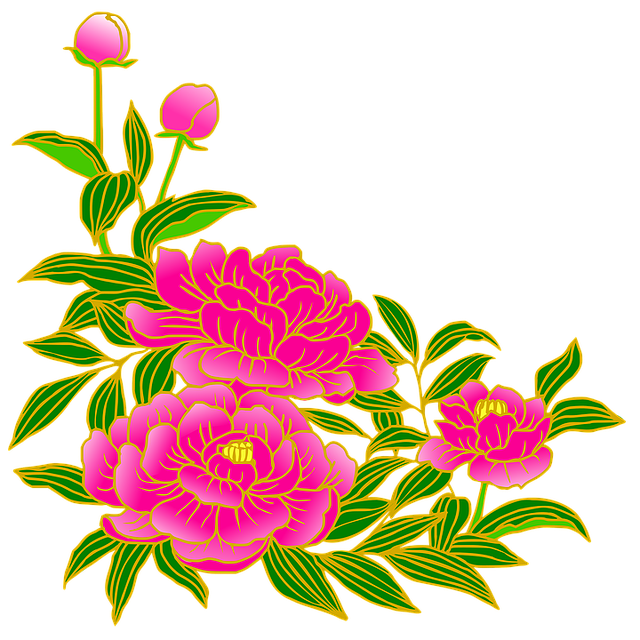
Dried peonies: How to
get it
As
with any other species of plant, different procedures and mechanisms are
available for its drying and preservation. Depending on the
means that we have at our disposal or the season (spring, winter, summer)
we can apply a series of techniques or others. Here we are going to
explain the main options.
First
of all, we can conclude that our favorite plant can also dry
out. Dehydration allows the flower to last for a long time,
although on many occasions, especially if we carry out the process by hand in
our home, it can lose color and its original appearance.
Can we
dry peonies? Yes of course! You can use the glycerol lyophilization
technique or one of the many flower drying techniques.
If
we are going to carry out the drying process in an artisanal way in
our house, we have two options. We've talked about the techniques before:
Applying one of the many flower drying techniques or applying a
somewhat more advanced technique to freeze-dry a flower with glycerin.
If
we want professional options, we recommend the preserved flower technique. Although
in this case, it will be difficult for us to replicate the process at home since
expensive machines are needed.
Paeonia Officinalis
seeds What are they like?
This section is aimed especially at botany and gardening lovers: If you are one of
those who prefer to grow their own plants instead of buying them directly in the
store, you can buy seeds and do the sowing yourself.
Without
a doubt, planting a plant is a much more enriching process
than simply going to a store and paying for it… but there is no doubt that it
requires a lot of effort and dedication.
First
of all, you have to know that there are more than 30 species of peonies,
different plants, so that when you go to a store, they will
probably ask you what type of seed you are looking for.
With
regard to sowing at home, we recommend good compost, enough space, and a lot of
patience.
Artificial peonies
As
with any other plant, its synthetic, plastic or ultimately artificial brothers
cannot be absent. At Adhoc Flores, we are not very in favor of using this
type of product and we do not commercialize it, but the truth is that it is
useful as a decorative element for offices or commercial premises.
One
of the options that we like and that has become fashionable in recent years is
the use of paper peonies, it is an ecological artificial
flower alternative to the plastic option. After all, paper
is biodegradable, resistant, and can be adapted to any shape and color.
One
of the main problems with artificial flowers is the
accumulation of dust particles and all kinds of dirt.
Within
the range of artificial plants, we have paper and plastic
options available. We are made of paper ... Which one do you prefer?
Although
these types of products do not require any special attention, it is recommended
to clean them regularly to remove any remaining dirt. It is preferable to
avoid cleaning products, with a cloth and a little patience will be more than
enough.
National flower of
China
Here
is a curious fact ... Do you know how it is known in China? The national
flower of China. As we said at the beginning of the post, one of the
recognized origins of this species is the Asian continent.
The
importance of this plant in Asian countries is of great importance. So
much so that it has been considered as something representative of the country
and constitutes, together with a few, the national species.
The plum, lotus flower, orchids, bamboo, chrysanthemums, and Chinese
peach are the rest of the species that together with our protagonist
are considered sacred flowers and icons of Chinese
botany.
Peony Tattoos
We
have already seen at the beginning of the article that the meaning of
this variety differs depending on the country of origin. In some cultures or religions, it is associated with wealth and prosperity while
in other places, it has an association more oriented to beauty and fragility.
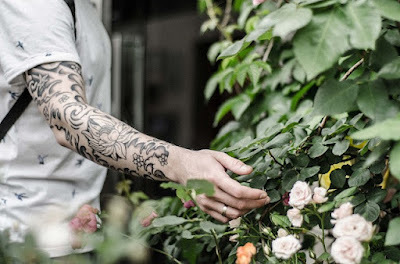





No comments:
Please do not enter any spam message in the link.